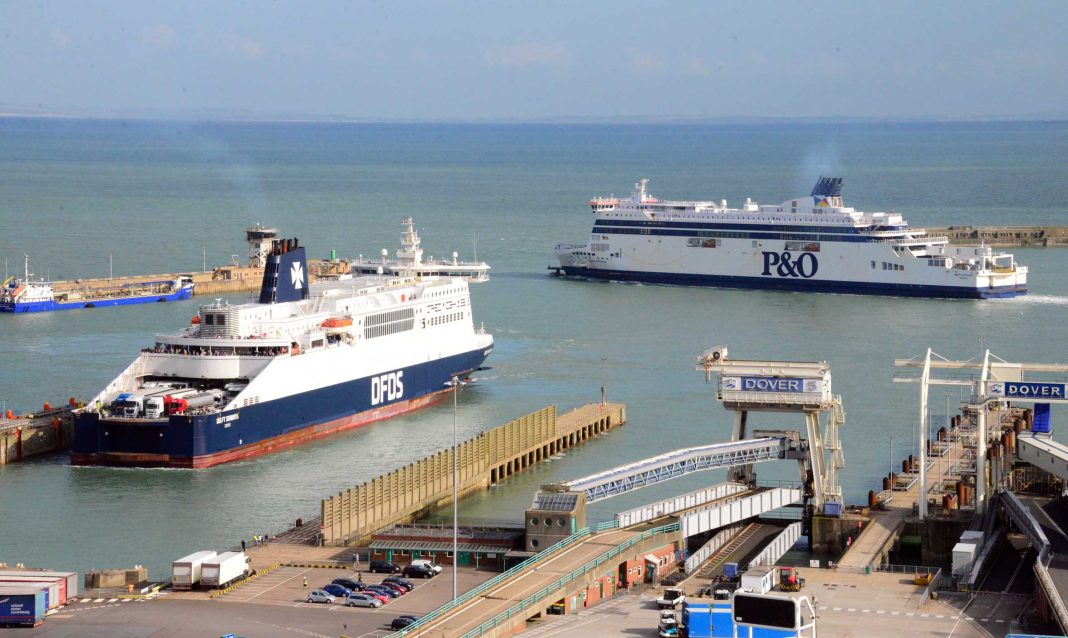Dover Ferry Port is marking 70 years of operations in 2023. On 4 July 1953 the Port of Dover’s roll-on, roll-off berths opened for the first time, transforming ferry travel to Europe.
70 years on from the opening of the Port’s first roll-on, roll-off ferry berths, Dover Harbour Board and all its staff remain proud to be stewards of Dover’s heritage and to be driving the Port into a new age.
The Port of Dover of today facilitates £144bn of UK trade each year, handles 33 per cent of all trade with the EU, and is driving efficiencies and innovations that intend to ensure the next 70 years are even more prosperous.
Due to its geographic position, Dover had been Britain’s connection to Europe for centuries, receiving its royal charter in 1606 and assisting over a million passengers in crossing the Channel each year during the 20th century.
However, before 1953, most passengers boarded ships on foot from rail services and most cars were loaded on and off ships via cranes from the open deck to the quayside.
This was the first time in the United Kingdom that a road bridge (or ‘linkspan’) hinged from landside operations enabled vehicles to drive directly from the quayside to the ferry, at all states of the tide.
In response to this modernisation, larger, stern-loading ferries emerged and passenger capacity across the channel grew exponentially. Traffic through Dover increased rapidly, as travelling to Europe with your car for a summer holiday grew in popularity.
The innovation of the linkspan at the Port of Dover also paved the way for a transformation in how trade is carried in and of the UK in later years, with the emergence of roll-on, roll-off freight. Just 25 years later, ro-ro freight had become a major part of the Port of Dover’s key operation.
Doug Bannister, CEO of the Port of Dover, said:
‘The Port of Dover always has been, and always will be, Britain’s bridge to trade with Europe. At the opening of the ferry berths in 1953, it was declared that the new berths would “symbolise to motorists the modern portals of the Gateway to England, so appropriately inaugurated at the commencement of the new Elizabethan era.” The Port remains a symbol of such innovation in the 21st century, though it is apt that shortly after the commencement of the Carolean era, the Port of Dover’s ambition is being pushed further than ever; as we work on our mission to empower exchange across the channel for the next 70 years and beyond.’
The Port of Dover has stood as an integral connection between the British Isles and Europe for centuries, a chosen passage of kings and a bastion of fortitude and resilience during the World Wars.
In 2023, the Port of Dover is the sustainable gateway to Europe, with measures in place that will enable us to become carbon net zero by 2025. Dover is also welcoming in new technologies, such as the arrival of a hybrid ferry this year.
The Port of Dover is working smarter than ever before, harnessing digital technology and AI to find smart solutions to their most prominent challenges and work towards the realisation of smart and digital borders.



